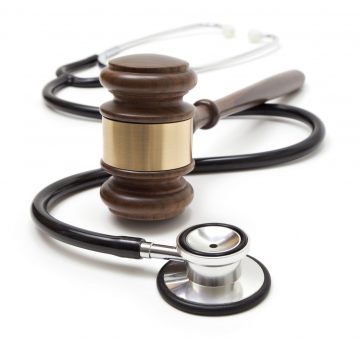
A deposition is similar to testifying at trial in that you are testifying under oath and your testimony can be used at trial.
A medical malpractice case has a lot of moving parts, and each one plays a vital role in the final decision. If you’re pursuing a medical malpractice claim, you’ll probably have to go through a deposition. A deposition is similar to testifying at trial in that you are testifying under oath and your testimony can be used at trial.The other side will take your deposition, and it’s actually a way for both parties to gather more information regarding the case.
How It Usually Goes
The deposition isn’t actually held in the courtroom, but rather an office, or even a court reporter’s office or other conference room. You’ll essentially undergo an examination by the opposing attorney, and he or she will ask you multiple questions. A court reporter is also present to transcribe the back and forth. The deposition is crucial, because a large majority of the trial will revert back to what is said in these moments. For example, if you say and confirm something during the deposition, but then during the trial you change your viewpoint from that confirmation, it could be a problem for your case and your deposition could be used to impeach your testimony.
Preparation
Preparation is key, and if it’s not taken seriously the case could suffer. Most of the information will come directly from your memory, but your medical malpractice attorney will most likely help you in jogging it. It’s important to recall the big moments of your case, and then try to specifically patch in the details around them. In practice exercises with your attorney, go through questions that may be asked. It’s basically like a verbal test, and you want to do everything you can to make sure you easily pass. The language used during this questioning is important, especially if you can’t remember something. It’s okay to say “I don’t recall.” Don’t force an answer you’re unsure about just to give an answer, because that could come back to hurt in the future. Answer everything with your best knowledge. The opposing side will probably ask about your symptoms, when they first occurred, when you sought help, how they changed your daily routine, etc. A deposition should never be blind; you should always have some type of preparedness.
Contact The Snyder Law Group Today
The Snyder Law Group, LLC, proudly represents clients throughout Maryland and Washington, D.C. Our experienced Baltimore attorneys understand the frustration that comes with an insurance company, medical professional, or other party that refuses to accept liability for negligent or reckless behavior. You can take heart in knowing there are talented and experienced lawyers ready to work for you. We are experienced in handling personal injury claims of medical malpractice or injury resulting from serious car and truck accidents, and have secured hundreds of millions in verdicts settlements*. Please visit our website, www.410thefirm.com, for more information and follow us on Facebook, Twitter, Google +, and LinkedIn.
